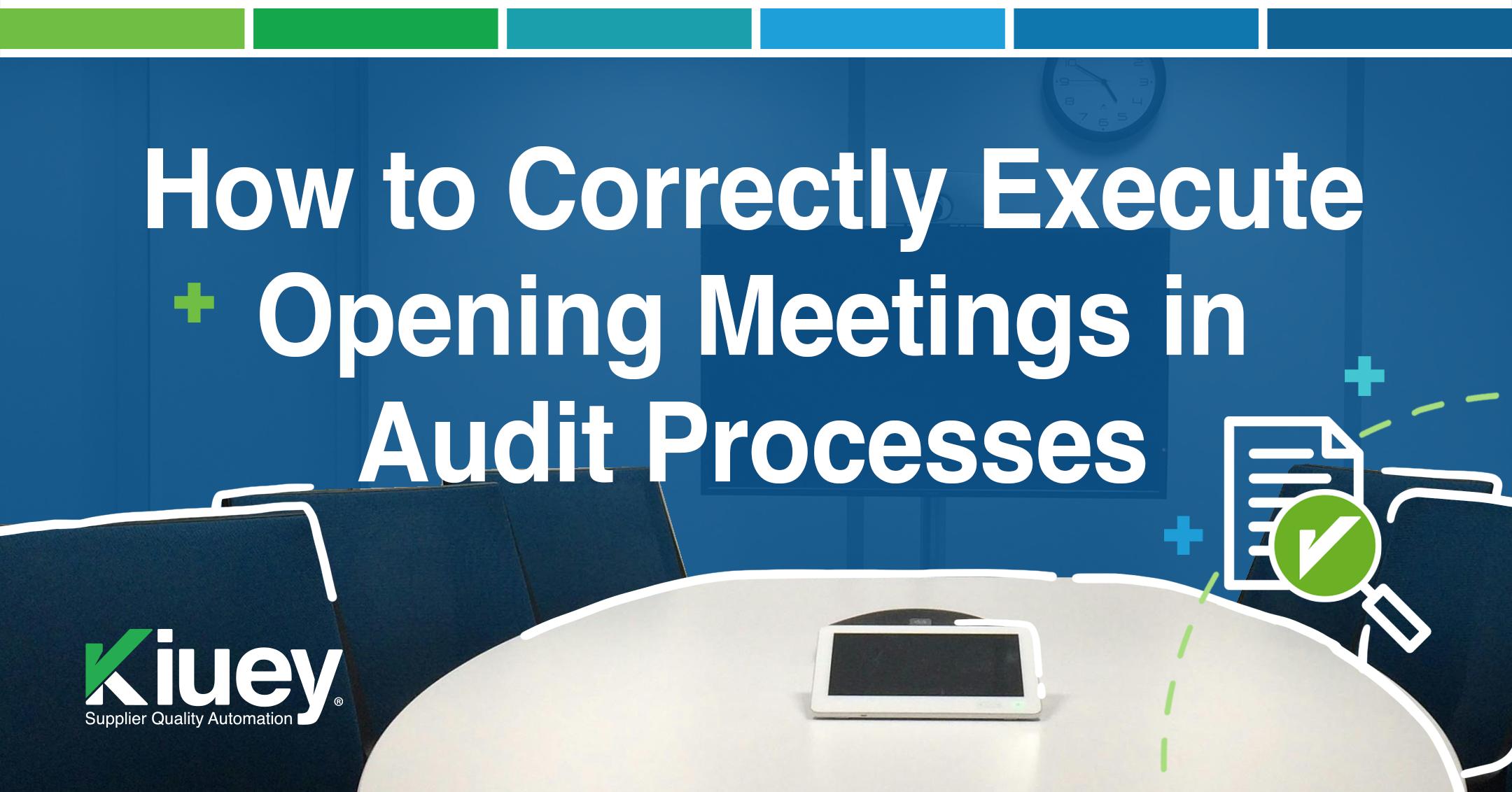How to Correctly Execute an Opening Meeting in Your Audit Processes
The success of any audit hinges on meticulous planning and execution. As a Supplier Quality Engineer, you play a crucial role in ensuring the integrity of your organization’s supply chain. This involves conducting thorough audits of your suppliers to assess their compliance with quality standards and ensure the delivery of high-quality products or services.
Two critical aspects of any successful audit are the Opening Meeting and the Closing Meeting. These seemingly brief interactions set the tone for the entire audit process and lay the groundwork for a productive and collaborative experience.
The Importance of the Opening Meeting
The Opening Meeting is not merely a formality; it’s a strategic opportunity to:
- Establish Clear Expectations: Clearly communicate the audit’s purpose, scope, and criteria to all stakeholders.
- Build Rapport: Foster a positive and collaborative environment by introducing team members and building rapport with the auditee.
- Address Logistics: Discuss logistical matters such as audit schedules, access to facilities, and any necessary safety precautions.
- Confirm Responsibilities: Clarify the responsibilities of both the audit team and the auditee throughout the audit process.
Key Considerations for a Successful Opening Meeting:
- Thorough Preparation: Develop a well-structured agenda that covers all essential points, including introductions, audit objectives, scope, criteria, schedules, and logistics.
- Clear Communication: Ensure that all information is communicated clearly and concisely, leaving no room for ambiguity.
- Active Listening: Pay close attention to the auditee’s concerns and questions, addressing them promptly and professionally.
- Professionalism: Maintain a professional and respectful demeanor throughout the meeting, fostering a positive and constructive environment.
Data Collection: The Heart of the Audit
Data collection is the cornerstone of any effective audit. As a Supplier Quality Engineer, you must gather objective evidence to support your findings and conclusions. Common data collection methods include:
- Visual Observations: Carefully observe the supplier’s facilities, processes, and work practices. Look for potential issues such as poor housekeeping, inadequate controls, or non-conforming materials.
- Record Review: Examine relevant documents such as work instructions, quality records, inspection reports, and corrective action reports. Ensure that records are complete, accurate, and traceable.
- Employee Interviews: Conduct interviews with key personnel to gain insights into their understanding of quality requirements, their roles and responsibilities, and any potential challenges they may face.
The Significance of the Closing Meeting
The Closing Meeting is a crucial opportunity to:
- Summarize Key Findings: Present a concise summary of the audit findings, including any non-conformances or opportunities for improvement.
- Discuss Corrective Actions: Discuss the agreed-upon corrective actions for identified non-conformances, including timelines and responsibilities.
- Provide Feedback: Provide constructive feedback to the auditee on their quality management system and areas for improvement.
- Reinforce Commitment: Reiterate the importance of continuous improvement and the commitment to maintaining a robust quality management system.
By effectively conducting both the Opening and Closing Meetings, you can significantly enhance the overall effectiveness and efficiency of your supplier audits. Remember, these meetings are not just formalities; they are critical steps in building strong relationships with your suppliers and ensuring the long-term success of your quality initiatives.





